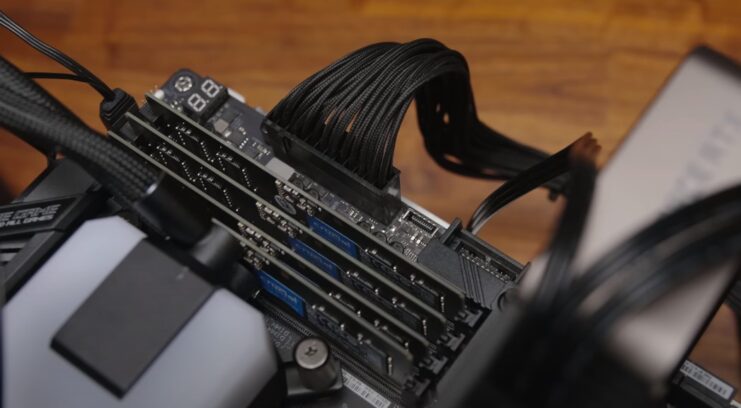The question of whether 8GB RAM suffices for gaming has sparked much debate among gamers like myself. There was a time when this amount of memory was the gold standard for gaming rigs. The gaming industry has undergone significant changes, especially after 2021, with the introduction of titles that demand more from our systems.
I’ve noticed that these cutting-edge games aim to elevate graphical fidelity and immersive experiences to new heights, often requiring more than 8GB of RAM for optimal performance. A prime example of this shift is COD Warzone, a game that challenges the limits of what 8GB RAM can handle.
Despite tweaking the settings, the game struggles to keep up with the rapid data access needed, leading to a compromised gaming experience. This shortfall in memory capacity results in performance issues that undermine the enjoyment and depth of immersion that define gaming today.
It’s a clear sign that the landscape of gaming is evolving, and with it, the hardware requirements to fully experience what modern titles have to offer.
Key Takeaways:
- 8GB RAM, once the standard, is now often insufficient for the latest titles.
- Gamers using 8GB of RAM may experience performance issues such as longer load times, stuttering, and crashes.
- Key benefits of upgrading to 16GB or more include faster load times.
Is It Sufficient?
While 8GB of RAM was once considered ample for gaming, recent trends and technological advancements have shifted the benchmark. For older titles or games with modest requirements, 8GB may still provide a satisfactory experience, allowing for decent performance without significant issues.
For newer, more graphically intensive games released after 2021, 8GB of RAM often falls short of delivering the smooth, immersive experience gamers seek. Issues such as longer load times, stuttering during gameplay, and occasional crashes can occur, particularly when multitasking or running games at higher settings.
Upgrading to 16GB of RAM or more is becoming the new standard for gamers looking to future-proof their systems and enjoy the latest titles at their best. This upgrade not only enhances performance in demanding games but also improves overall system responsiveness, allowing for smoother multitasking and a better gaming experience.
With games continuing to push the limits of what’s possible in terms of graphics and complexity, having more RAM ensures that your system can handle these advancements without compromise.
When to Upgrade from 8GB RAM
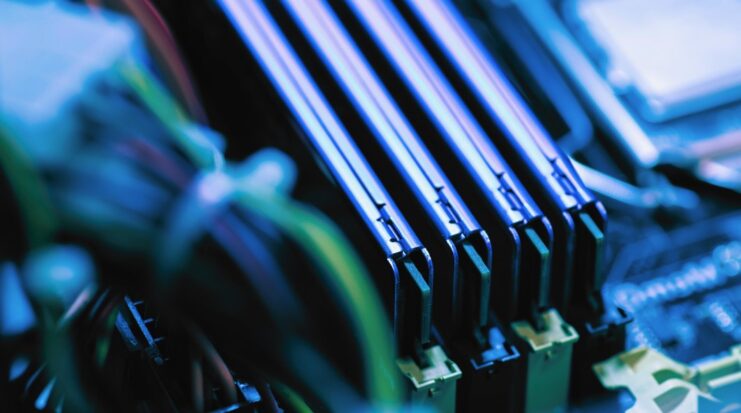
The decision to upgrade from 8GB RAM hinges on several factors, chief among them being the types of games you play and your expectations for gaming performance.
| Reason for Upgrade | Description |
|---|---|
| Improved Game Performance | Reduces stuttering and frame drops for a smoother gaming experience. |
| Faster Load Times | Decreases the time spent waiting for games and levels to load. |
| Enhanced Multitasking | Allows for running multiple applications simultaneously without performance degradation. |
| Better Streaming and Recording | Supports live streaming and high-quality game recording without impacting game performance. |
| Future-Proofing | Prepares your system for upcoming games with higher RAM requirements. |
| Reduced Crashes and Freezes | Minimizes the risk of game crashes and system freezes due to insufficient memory. |
| Higher Settings and Resolutions | Enables gaming at higher settings and resolutions without performance penalties. |
| Improved System Responsiveness | Enhances overall system responsiveness and speed, even outside of gaming. |
If you’re experiencing frequent stuttering, prolonged load times, or unexpected crashes, especially with games released after 2021, it’s a clear indication that your current RAM is insufficient. If you’re a gamer who likes to stream, record gameplay, or run multiple applications while gaming, the need for more RAM becomes even more critical.
Upgrading can dramatically enhance your gaming experience. Not only does it allow for smoother gameplay by accommodating the higher memory demands of modern titles, but it also supports better multitasking capabilities.
Benefits of Having More RAM for Gaming
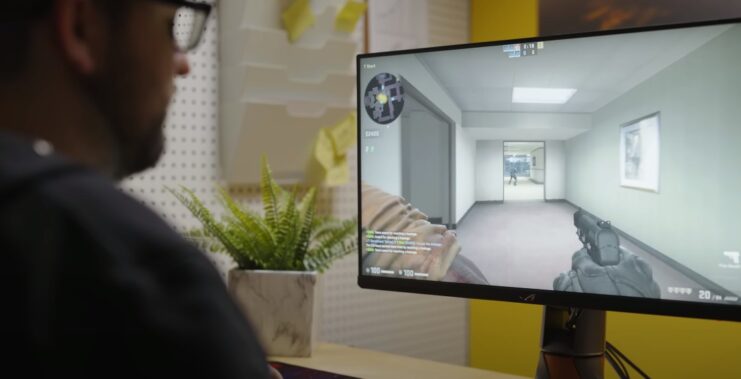
The benefits of having more RAM are quite numerous.
Faster Load Times
One of the most immediate benefits of upgrading to 16GB or more RAM is the noticeable improvement in load times. This enhancement means that gamers spend less time staring at loading screens and more time immersed in their gaming worlds.
With more RAM, data can be accessed and processed more quickly, significantly reducing the time it takes for games and levels to load. This reduction in load times is not just a quality-of-life improvement; it keeps the momentum of gaming sessions going, making for a smoother and more enjoyable gaming experience overall.
Higher Settings Without Compromising Performance
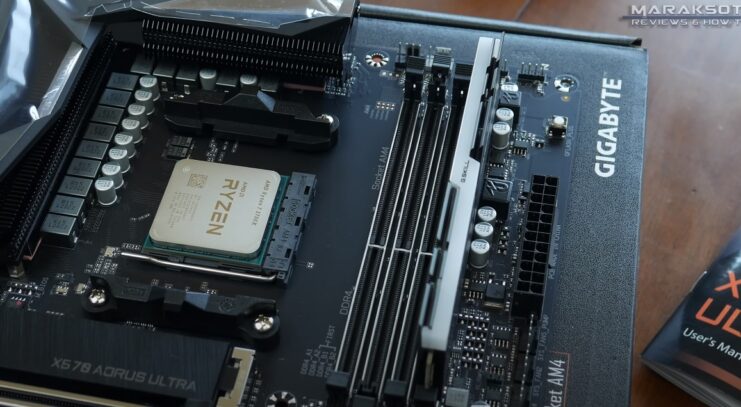
Another significant advantage of having more RAM is the ability to run games at higher graphical settings without sacrificing frame rates. More RAM allows your system to handle more detailed textures, complex shaders, and various in-game effects that contribute to a visually richer and more immersive gaming experience.
This is especially beneficial for gamers who prioritize graphical fidelity and want to experience games as the developers intended, with all visual settings turned up to their maximum. The extra RAM ensures that these enhancements do not come at the cost of smooth gameplay, maintaining a stable and high frame rate even under demanding conditions.
Enhanced Multitasking Capabilities
For streamers and content creators, the ability to run multiple applications simultaneously is crucial. Upgrading to 16GB or more RAM provides the necessary headroom to operate broadcasting software, web browsers, chat applications, and other tools in conjunction with games without impacting game performance.
This multitasking capability is essential for creating a professional and engaging live stream or recording, as it allows for seamless switching between applications and smoother integration of various media sources.
The additional RAM ensures that both the game and the ancillary applications have enough memory to function optimally, enabling content creators to produce high-quality content without technical hiccups.
Considerations for Upgrading RAM
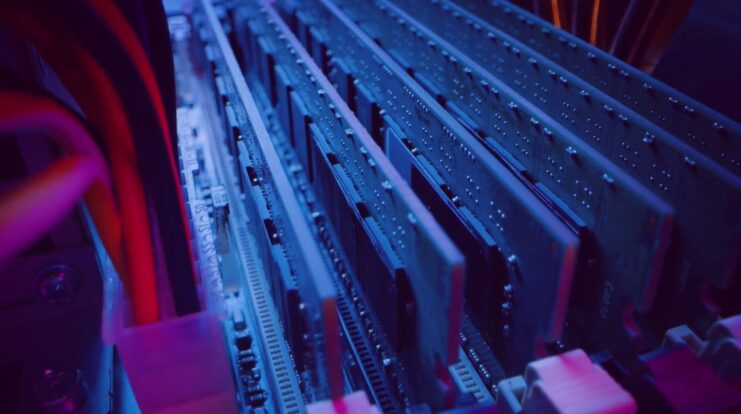
The temptation to upgrade your RAM for better gaming performance is understandable, yet it’s crucial to approach this upgrade with a strategic mindset. Here are some of the most important ones:
| Consideration | Description |
|---|---|
| Compatibility | Ensure the RAM is compatible with your motherboard in terms of type, speed, and size. |
| Installation | Proper installation is crucial to prevent issues like system instability or boot failures. |
| Diminishing Returns | Recognize the point at which additional RAM no longer improves performance significantly. |
| System Support | Verify that your system can support the upgrade, considering both hardware and BIOS/UEFI limitations. |
| Use Case | Consider your specific use cases, such as gaming, multitasking, or content creation, to determine the optimal amount of RAM. |
| Cost vs. Benefit | Evaluate the cost of the upgrade against the expected performance benefits to ensure a wise investment. |
FAQs
Do I need 32GB RAM for gaming?
No, you don’t necessarily need 32GB of RAM for gaming. Most modern games run smoothly with 16GB of RAM. However, 32GB can be beneficial for future-proofing your system, running very demanding games, or if you’re into heavy multitasking and content creation alongside gaming.
Does RAM affect FPS?
Yes, RAM can affect FPS, but primarily in scenarios where there’s not enough of it. Having sufficient RAM allows your system to handle game data more efficiently, reducing stutter and potential bottlenecks. However, once you have enough RAM to meet the game’s requirements, further increases may only offer marginal FPS improvements.
Is DDR4 better than DDR5?
DDR5 is the newer standard and offers higher speeds and greater bandwidth compared to DDR4, leading to potential improvements in system performance and efficiency. However, whether DDR5 is “better” depends on your system’s compatibility and whether your applications can take advantage of the increased performance.
Can I have 3 RAM sticks?
Yes, you can have 3 RAM sticks in your system, but it’s not the optimal configuration for dual-channel or quad-channel memory architectures, which are designed to work with even numbers of RAM sticks for maximum performance. Using 3 sticks may result in running in single-channel mode, potentially reducing overall memory bandwidth and performance.
Summary
While 8GB of RAM might have cut it for me in the past, the evolving demands of modern gaming and the need for efficient multitasking have made it clear that this amount is no longer enough.
I’ve found that stepping up to 16GB or more has drastically improved my gaming sessions, allowing me to dive into newer, more resource-intensive games while keeping everything running smoothly when I’m juggling multiple tasks.

